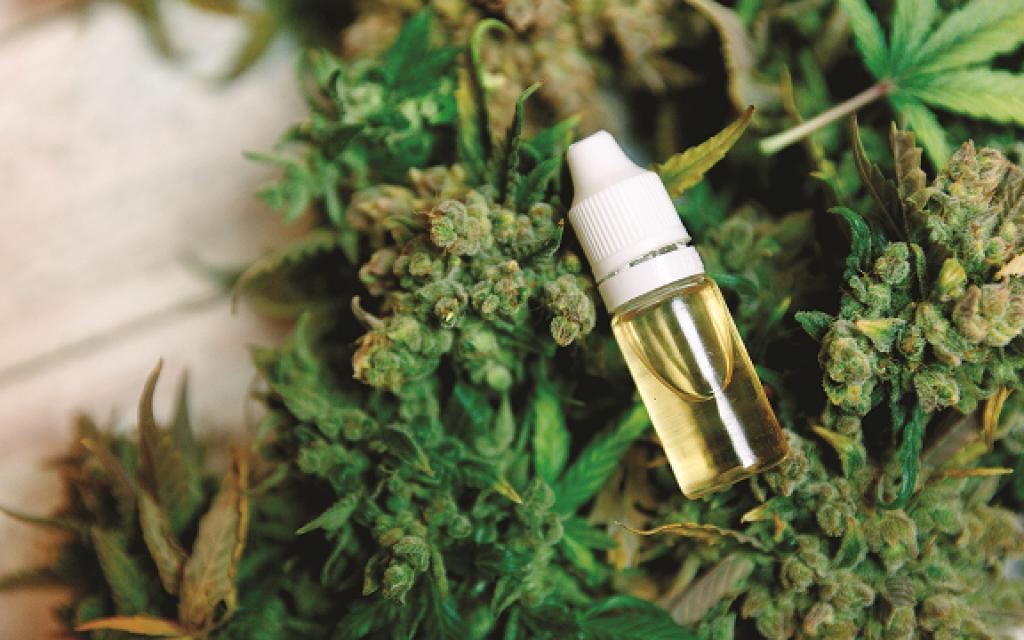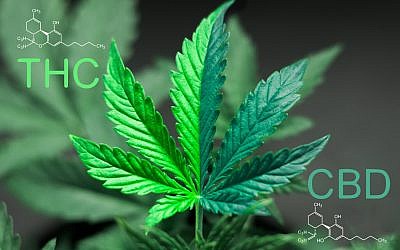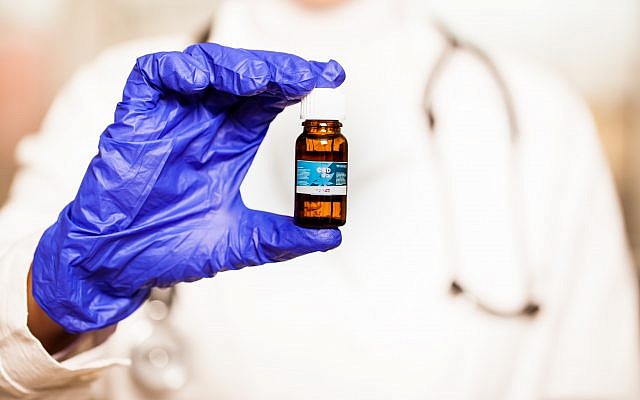Medical Marijuana: The Georgia Update
Local doctor explains the legality of medical marijuana -- while not yet federally legal, some states have legalized it for all uses.
After 37 years with the Atlanta Journal-Constitution and now with the AJT, , Jaffe’s focus is lifestyle, art, dining, fashion, and community events with emphasis on Jewish movers and shakers.
Atlanta native and integrative physician Dr. Zachary Cohen of Oak Grove Family Medicine filled the sanctuary at Congregation Or Hadash for a Hadassah-sponsored event on medical marijuana earlier this year. At that time, he noted, “Medical marijuana is a slippery slope (in Georgia) … Evolution has kept this plant around for thousands of years. One should ponder why Mother Nature did this for us. The plant seems to have secured its own evolution through its interaction with humans.”
Jaffe: Georgia law initially was very specific about conditions that are allowed. Multiple sclerosis; AIDS; hospice care; neuropathy; end-stage cancer; autism in those older than 18, unless labeled severe; Tourette’s, Parkinson’s and Crohn’s diseases. Has this changed?
Cohen: Yes, as of July 1, 2018, two new conditions were added to the list of approved conditions – intractable pain and post-traumatic stress disorder.
Jaffe: If you could add other conditions, what would they be?
Cohen: Anxiety, insomnia, fibromyalgia, IBS (irritable bowel syndrome), ulcerative colitis, rheumatoid arthritis, psoriatic arthritis, juvenile idiopathic arthritis, Ehlers-Danlos syndrome (a group of genetic connective tissue disorders) to name a few.

Jaffe: What are the most common conditions that you treat with medical marijuana?
Cohen: Intractable pain, severe peripheral neuropathy, seizures, autism are most common, but I think I see a patient with every one of the approved conditions, except one.
Jaffe: In what conditions do you see the most improvement with treatment?
Cohen: Chronic pain and neuropathy.
Jaffe: What is happening in Georgia to make it easier to obtain medical marijuana? Do we have a state senator who serves as a connection point/advocate?
Cohen: It is actually not yet any easier to obtain these medicines in Georgia. In-state cultivation and sales of low THC (tetrahydrocannabinol) oil is still not permitted. Patients must find alternative means of obtaining their medicine. Allen Peake retired from politics, so we are currently waiting for a new champion of medicinal cannabis in the Georgia legislature.
Jaffe: Where do you predict Georgia will be in five years in the range of legality?
Cohen: I believe that this will highly depend on the outcome of the local elections coming up next month.
Jaffe: It is still against federal law?
Cohen: Marijuana has not yet been made federally legal, although there are some states who have legalized it for all uses. Research does seem to have improved. A search on www.clinicaltrials.gov showed 737 studies somehow involving cannabis.

Jaffe: Do you believe that the pharmaceutical lobby is holding back the use of medical marijuana? Recently the national news described some traditional companies promoting new drugs as mainstream?
Cohen: I have not seen any concrete evidence that the pharmaceutical lobby is holding back the use of medical marijuana. I have seen some companies looking to patent synthetic cannabinoids, and possibly ride the wave of increased public interest in cannabis. However, the fact that cannabis can be grown and processed at home, combined with its effectiveness at treating many conditions, I can certainly see how this could threaten pharmaceutical profits. One can only hope that our elected officials ensure that the progress of cannabis – and all – policy always puts patients first and above profit.

Jaffe: What are some creative uses of edibles or products that are on the market?
Cohen: In Georgia, only low THC oil requires registration and certification, and therefore my input. This oil is taken orally much like any other oil-based medicine – as free oil or as oil inside a gelatin capsule. This pure, unadulterated form is my preferred method of administration, as many creative edibles end up adding extra sugars, artificial food dyes and other medically unnecessary and potentially harmful ingredients.
Jaffe: Do you see patients driving to legal states with more liberal laws to acquire it?
Cohen: Yes, I have certainly had many patients tell me that they have had to do this. It worries me greatly that these people must take on risk in order to get safe and effective medicine for themselves or their loved ones from a neighboring state in the same country.




comments